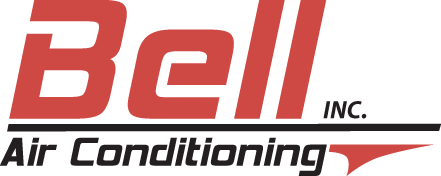
We spend a lot of time inside. As a matter of fact, the Environmental Protection Agency (EPA) has estimated being indoors comprises 90% of our schedule. However, the EPA also says your indoor air can be three to five times more polluted than outdoors.
That’s since our homes are securely sealed to boost energy efficiency. While this is great for your utility costs, it’s not so good if you’re among the 40% of the population with respiratory allergies.
When outdoor ventilation is limited, pollutants like dust and volatile organic compounds (VOCs) might get captured. As a result, these pollutants may worsen your allergies.
You can boost your indoor air quality with clean air and routine housework and vacuuming. But if you’re still having problems with symptoms when you’re at your house, an air purifier might be able to provide assistance.
While it can’t remove pollutants that have landed on your couch or flooring, it might help purify the air traveling across your home.
And air purification has also been scientifically confirmed to help reduce some allergic symptoms, according to the American College of Allergy, Asthma and Immunology. It could also be helpful if you or a loved one has lung trouble, including emphysema or COPD.
There are two kinds, a portable air purifier or a whole-home air purifier. We’ll examine the distinctions so you can figure out what’s correct for your residence.
Whole-House Air Purifier vs. Portable Air Purifiers
A portable air purifier is for a single room. A whole-house air purifier accompanies your home comfort system to clean your entire house. Some types can work by themselves when your HVAC system isn’t on.
What’s the Best Air Purifier for Allergies?
Look for an option with a High Efficiency Particulate Air (HEPA) filter. HEPA filters are placed in hospitals and offer the greatest filtration you can buy, as they catch 99.97% of particles in the air.
HEPA filters are even more powerful when installed with an ultraviolet (UV) germicidal light. This mighty combination can eliminate dust, dander, pollen and mold, all of which are standard allergens. For the ultimate in air purification, think over equipment that also has a carbon-based filter to eliminate household smells.
Avoid getting an air purifier that generates ozone, which is the top component in smog. The EPA advises ozone may aggravate respiratory problems, even when discharged at minor amounts.
The Allergy and Asthma Foundation of America has compiled a checklist of questions to ask when buying an air purifier.
- What can this purifier extract from the air? What doesn’t it extract?
- What’s its clean air delivery rate? (A bigger figure means air will be cleaned faster.)
- How frequently does the filter or UV bulb need to be switched]? Can I finish that without help?
- How much do new filters or bulbs cost?
How to Decrease Seasonal Allergy Symptoms
Want to have the {top|most excellent|best] outcome from your new air purification unit? The Mayo Clinic suggests completing other steps to decrease your exposure to problems that can cause seasonal allergies.
- Stay indoors and keep windows and doors closed when pollen counts are elevated.
- Have other household members mow the lawn or pull weeds, since these jobs can aggravate symptoms. If you have to do this work alone, you may want to consider using a pollen mask. You should also bathe without delay and put on new clothes once you’re done.
- Avoid hanging laundry outdoors.
- Turn on air conditioning while at home or while in the car. Consider installing a high efficiency air filter in your house’s home comfort unit.
- Equalize your residence’s humidity percentage with a whole-house dehumidifier.
- Hardwood, tile or linoleum are the suggested flooring kinds for reducing indoor allergens. If your home has carpet, add a HEPA filter on your vacuum cleaner.
Let Our Professionals Take Care of Your Indoor Air Quality Requirements
Ready to move forward with getting a whole-house air purifier? Give our professionals a call at 254-307-9572 or contact us online to schedule an appointment. We’ll help you choose the ideal unit for your home and budget.
